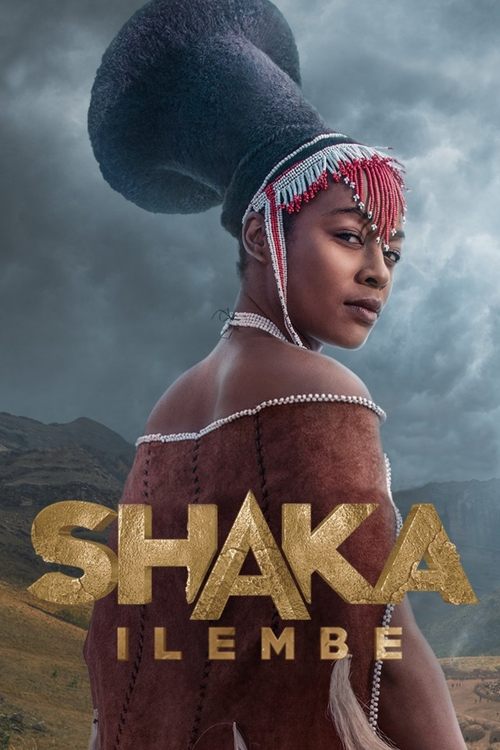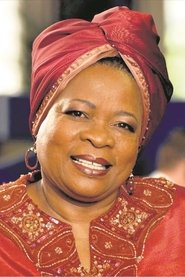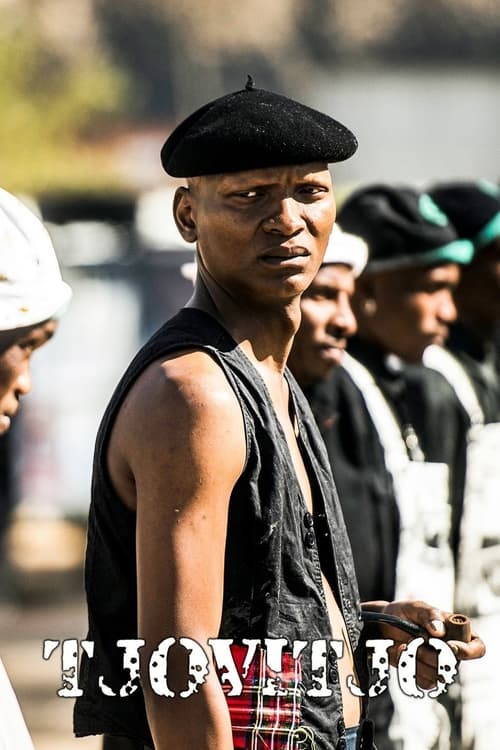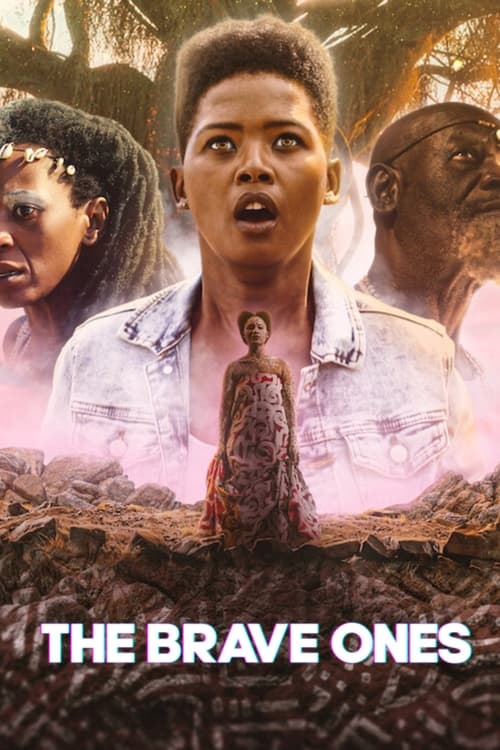
Ask Your Own Question
What is the plot?
In Episode 9 of "Nqobile," the episode opens with Nqobile sitting in her room, visibly distressed after the events of the previous episode. She stares at a photo of her family, reflecting on the choices she has made and the consequences they have brought. The atmosphere is heavy with tension as she grapples with her feelings of guilt and responsibility.
The scene shifts to her brother, Thabo, who is in a heated discussion with his friends about the recent troubles in their community. Thabo expresses his frustration over the lack of support from local leaders, feeling that they are not doing enough to address the issues affecting their lives. His friends encourage him to take action, suggesting they organize a community meeting to voice their concerns.
Meanwhile, Nqobile receives a phone call from her best friend, Zanele, who urges her to join the community meeting. Zanele emphasizes the importance of unity and how they can make a difference together. Nqobile hesitates, torn between her desire to help and her fear of facing the community after her recent mistakes. After a moment of contemplation, she decides to attend the meeting, motivated by a sense of duty to her community.
At the community center, the atmosphere is charged with anticipation as residents gather. Thabo takes the stage first, passionately addressing the crowd about the challenges they face, including crime and lack of resources. He calls for collective action and encourages everyone to share their experiences. The crowd responds positively, and Nqobile feels a surge of hope as she listens to her brother's words.
As the meeting progresses, Nqobile finally stands up to speak. She shares her own experiences and the struggles she has faced, admitting her past mistakes. Her vulnerability resonates with the audience, and she receives a supportive response. This moment marks a turning point for Nqobile, as she begins to reclaim her sense of agency within the community.
However, the meeting takes a dramatic turn when a group of young men, known for their involvement in local crime, interrupts the proceedings. They challenge the community's efforts, mocking their attempts to create change. Tensions rise as the crowd becomes divided, with some supporting the young men and others rallying behind Nqobile and Thabo. A confrontation ensues, leading to a chaotic scene where voices are raised, and emotions run high.
In the midst of the chaos, Nqobile steps forward, determined to defuse the situation. She appeals to the young men, trying to understand their motivations and frustrations. Her calm demeanor and willingness to listen catch them off guard, and for a moment, the hostility subsides. This pivotal moment showcases Nqobile's growth as a leader, as she seeks to bridge the gap between opposing sides.
As the episode nears its conclusion, the community begins to rally around Nqobile's message of understanding and collaboration. The young men, still skeptical, agree to a dialogue rather than resorting to violence. The scene ends with a sense of cautious optimism, as Nqobile and Thabo exchange proud glances, recognizing the potential for change within their community.
The episode closes with Nqobile reflecting on the day's events, feeling a renewed sense of purpose. She understands that the road ahead will be challenging, but she is ready to face it head-on, supported by her brother and the community she has begun to unite.
What is the ending?
In the ending of "Nqobile," Season 1, Episode 9, tensions reach a boiling point as Nqobile confronts her past and the choices that have led her to this moment. The episode culminates in a dramatic showdown that forces the characters to face their truths, leading to significant transformations and resolutions.
As the episode unfolds, we see Nqobile standing at a crossroads, grappling with her emotions and the weight of her decisions. The atmosphere is thick with tension as she prepares to confront those who have wronged her. The setting shifts to a dimly lit room where the confrontation takes place, highlighting the gravity of the moment. Nqobile's heart races, her hands trembling slightly as she recalls the pain inflicted upon her by those she once trusted.
In a pivotal scene, Nqobile faces her former friend, who has betrayed her. The air is charged with unresolved anger and hurt. Nqobile's voice quivers as she articulates her feelings, revealing the depth of her betrayal and the scars it has left on her soul. Her former friend, defensive and remorseful, struggles to justify her actions, leading to a heated exchange that lays bare their fractured relationship.
As the confrontation escalates, Nqobile's resolve strengthens. She realizes that she must reclaim her power and not allow her past to dictate her future. The emotional weight of her journey culminates in a moment of catharsis as she finally stands up for herself, declaring that she will no longer be a victim of her circumstances. This declaration marks a turning point for her character, showcasing her growth and resilience.
Meanwhile, other characters are also facing their own demons. Nqobile's family members, who have been caught in the crossfire of her struggles, begin to understand the impact of their actions on her life. They witness her transformation and are forced to confront their own shortcomings. This realization leads to a poignant moment of reconciliation, as they come together to support Nqobile in her quest for healing.
The episode concludes with a sense of hope and renewal. Nqobile, now empowered, steps out into the light, symbolizing her newfound strength and determination to forge her own path. The camera lingers on her face, capturing the mix of relief and resolve as she embraces her future, leaving behind the shadows of her past.
In summary, the ending of "Nqobile" Season 1, Episode 9, encapsulates the themes of empowerment, reconciliation, and the importance of confronting one's past. Each character experiences a moment of clarity, leading to personal growth and a collective understanding of the need for change. Nqobile emerges as a stronger individual, ready to embrace the challenges ahead, while her family begins to mend their fractured relationships, setting the stage for a hopeful future.
Is there a post-credit scene?
In "Nqobile," Season 1, Episode 9, there is indeed a post-credit scene that adds an intriguing layer to the episode's narrative.
As the credits roll, the screen fades back in to reveal a dimly lit room filled with shadows. The camera slowly pans to a figure sitting at a desk, their face obscured by the low light. The atmosphere is tense, and a sense of foreboding hangs in the air. The figure is seen flipping through a series of photographs, each depicting key moments from the season, including pivotal interactions between Nqobile and her friends, as well as some of the antagonists she has faced.
The camera zooms in on one particular photograph that shows Nqobile looking determined, her eyes filled with a mix of hope and defiance. The figure at the desk pauses, a smirk creeping across their face, suggesting a deeper connection to the events that have unfolded. They reach for a phone and dial a number, their voice low and conspiratorial as they say, "It's time to move forward with the plan. She won't see this coming."
The scene ends with a close-up of the figure's hand, revealing a ring that glints ominously in the light, hinting at their significant role in the upcoming challenges Nqobile will face. This post-credit moment leaves viewers with a sense of anticipation and curiosity about the looming threats and the unseen forces at play in Nqobile's journey.
What significant decision does Nqobile make in Episode 9 that impacts her relationship with her family?
In Episode 9, Nqobile grapples with the weight of her family's expectations and ultimately decides to confront her parents about her desire to pursue her own dreams rather than follow the path they have laid out for her. This decision creates tension but also marks a pivotal moment in her character development.
How does the conflict between Nqobile and her best friend escalate in this episode?
The conflict between Nqobile and her best friend intensifies when Nqobile discovers that her friend has been keeping secrets about a mutual acquaintance. This revelation leads to a heated argument, showcasing their differing values and priorities, and forces Nqobile to reevaluate her trust in their friendship.
What role does the community play in Nqobile's journey in Episode 9?
In this episode, the community plays a crucial role as they rally around Nqobile during a public event where she must present her ideas. Their support provides her with the confidence she needs, but also highlights the pressure she feels to represent them well, adding to her internal conflict.
What emotional moment occurs between Nqobile and her mother in Episode 9?
An emotional moment occurs when Nqobile and her mother share a heartfelt conversation about their dreams and fears. Nqobile's mother reveals her own struggles and regrets, which deepens Nqobile's understanding of her mother's sacrifices, leading to a moment of vulnerability and connection between them.
How does Nqobile's perspective on her future change by the end of Episode 9?
By the end of Episode 9, Nqobile's perspective on her future shifts significantly as she begins to embrace her individuality and the possibility of pursuing her passions. This change is catalyzed by her confrontations and the support she receives, leading her to feel more empowered to carve her own path.
Is this family friendly?
In "Nqobile," Season 1, Episode 9, there are several elements that may be considered objectionable or upsetting for children or sensitive viewers.
-
Emotional Turmoil: The episode features intense emotional scenes where characters experience grief, betrayal, and conflict, which may be distressing for younger audiences.
-
Family Conflict: There are scenes depicting family disputes that can be uncomfortable, showcasing arguments and tension that might resonate negatively with children.
-
Themes of Loss: The episode touches on themes of loss and abandonment, which could be upsetting for sensitive viewers, particularly those who have experienced similar situations.
-
Mature Discussions: Some conversations may involve mature themes or language that could be inappropriate for younger viewers.
-
Visual Tension: There are moments of visual tension that may evoke anxiety, such as confrontational scenes or emotional breakdowns.
These aspects contribute to a narrative that, while rich and engaging, may not be suitable for all audiences, particularly children or those who are sensitive to emotional distress.



















